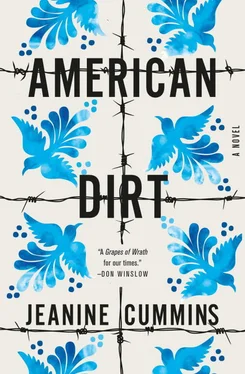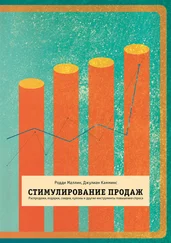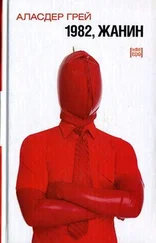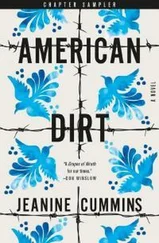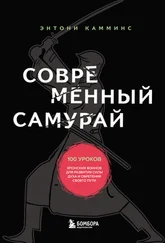Жанин Камминс - American Dirt
Здесь есть возможность читать онлайн «Жанин Камминс - American Dirt» весь текст электронной книги совершенно бесплатно (целиком полную версию без сокращений). В некоторых случаях можно слушать аудио, скачать через торрент в формате fb2 и присутствует краткое содержание. Город: London, Год выпуска: 2020, ISBN: 2020, Издательство: Tinder Press, Жанр: Современная проза, на английском языке. Описание произведения, (предисловие) а так же отзывы посетителей доступны на портале библиотеки ЛибКат.
- Название:American Dirt
- Автор:
- Издательство:Tinder Press
- Жанр:
- Год:2020
- Город:London
- ISBN:978-1-4722-6138-0
- Рейтинг книги:5 / 5. Голосов: 1
-
Избранное:Добавить в избранное
- Отзывы:
-
Ваша оценка:
- 100
- 1
- 2
- 3
- 4
- 5
American Dirt: краткое содержание, описание и аннотация
Предлагаем к чтению аннотацию, описание, краткое содержание или предисловие (зависит от того, что написал сам автор книги «American Dirt»). Если вы не нашли необходимую информацию о книге — напишите в комментариях, мы постараемся отыскать её.
FEAR KEEPS THEM RUNNING.
HOPE KEEPS THEM ALIVE.
Vivid, visceral, utterly compelling, AMERICAN DIRT is the first novel to explore the experience of attempting to illegally cross the US-Mexico border. cite empty-line
9
empty-line
11 empty-line
14
American Dirt — читать онлайн бесплатно полную книгу (весь текст) целиком
Ниже представлен текст книги, разбитый по страницам. Система сохранения места последней прочитанной страницы, позволяет с удобством читать онлайн бесплатно книгу «American Dirt», без необходимости каждый раз заново искать на чём Вы остановились. Поставьте закладку, и сможете в любой момент перейти на страницу, на которой закончили чтение.
Интервал:
Закладка:
By the time she’s finished, Luca is snoring softly on one of the room’s two single beds, and the sisters, too, are already asleep, curled up together. Soledad cradles her sister’s head in her arms, and their hair is fanned out in one twisted, black wave across their shared pillow. Lydia rummages through her pack for her toothbrush, and rations a smear of paste onto the bristles. She considers the brown water from the tap before sticking the toothbrush under there and wetting it. At home, there was a whole routine before she got into bed. It could take twenty minutes some nights. Cold cream, toner, moisturizer, floss, toothpaste, mouthwash, lip balm. Some nights tweezers, too, or clippers or nail files. Of course, the occasional exfoliant or mask. Hand cream. Fluffy socks if her feet were chilly. Sebastián would whisper-call from the bedroom, trying not to wake Luca in his impatience, ‘ Madre de Dios, wife, the Eiffel Tower was built faster!’ But when she was finished, he’d always fold back the covers to invite her in. He’d drape them over her when she was settled, along with the top half of himself. His breath was clean when he kissed her.
Lydia avoids her reflection in the harsh yellow light of the rusty mirror. She spits into the sink and rinses her mouth. She splashes murky water over her face and neck and dries herself off with the shirt she wore for the last two days. When she finally slips into bed beside Luca, before she can even invoke her don’t think mantra, exhaustion descends like anesthesia and blots out everything else. They sleep.
Some hours later and well before dawn, Rebeca wakens Lydia from a black sleep.
‘It’s Soledad,’ Rebeca whispers to Lydia. ‘Something’s wrong with her.’
Lydia disentangles herself from Luca, who smacks his lips in his sleep, and then rolls tighter into a ball facing the wall. A good deal of light comes in through the room’s only window, which has an insufficient curtain and is positioned beneath an overzealous streetlamp. Lydia moves to the other twin bed, where Soledad sits rocking over her legs and clutching her stomach.
‘Soledad? Are you okay?’
She clenches her jaw and rocks her body forward. ‘Just bad cramps.’
Lydia looks up at Rebeca, whose face is a cloud of worry. ‘Just sit with Luca,’ Lydia says. ‘Make sure he stays asleep.’
Rebeca sits at the foot of Luca’s bed.
‘Can you stand?’ Lydia asks.
Soledad gathers her strength and then rocks herself onto her feet. There’s a dark stain on the mattress beneath her and the mineral scent of blood. Lydia grips her under the elbow and steers her around the bed toward the corner of the room where the plumbing is. She positions the flimsy curtain to give Soledad as much privacy as possible while she miscarries her baby.
Good to his word, the doctor returns in the morning and drives them to Culiacán. The girls’ jeans are still damp and stiff from Lydia’s scrubbing, but they wear them anyway, and the sun isn’t long drying them. It eats the moisture from their clothes and their hair and skin. Rebeca moves a little easier and Soledad with a little more difficulty than yesterday. Lydia wants to buy a packet of sanitary napkins for Soledad, but they’re expensive, so she puts her embarrassment away and asks the doctor, who, being a doctor, thinks nothing of the request and complies without hesitation. He also buys them breakfast and a tube of sunscreen, which he urges them to use, and for Luca, a comic book. When he takes his leave, he does so abruptly, to release them from the effort of gratitude.
Lydia cannot wait to get back on the train, to get away from the nightmarish memories of this place, to be traveling north at high speed. She’s terrified as they walk the tracks through the city that they will be spotted, that the guard from yesterday will be out driving to work – Do these men commute to work? Is that what they call it? Do they kiss their wives and children goodbye each morning and then climb into the family sedan and set out for a day of raping and extortion, and then return home exhausted in the evenings and hungry for their pot roast? – and he’ll see her, he’ll see the four of them walking north along the tracks, and the information will snap into place, and he’ll remember: her face smiling beside Javier’s in that picture. She pushes Luca gently in the back, ushers him into a faster pace. They cross over a muddy river on a skeletal railway bridge, and discover a train yard where the tracks are lined on one side with giant boulders. A few clusters of migrants wait there, surrounded by the dirty colors of litter and debris, mud and weeds. There’s a boy among them, slightly older than Luca, but certainly younger than Rebeca. He stands while the other migrants sit hunching their shoulders against him. His eyes are unfocused and his posture is the shape of a question mark. His hands float unsteadily in front of him, and he sways strangely on his curved legs.
‘Mami, what’s wrong with him?’ Luca asks.
He’s the most disturbing child Luca has ever seen. He seems unaware of them, unaware of anything. Mami shakes her head, but Soledad provides a one-word answer: drogas . They move quickly past the boy, away from the cluster of migrants he seems to be orbiting. In fact they are nearly ready to quit the railway yard altogether when three well-dressed young women appear at a crossing ahead on the tracks. They wave their arms overhead and call out, ‘Hermanos, ¡tenemos comida!’ The men stand up from their clusters, pat the dust from their jeans, and gather for the offer of food. One of the three women reads loudly from the Bible while the other two hand out tamales and atole . Luca’s not hungry because, thanks to the doctor, they already had breakfast, but he’s learned never to turn down a gift of calories. They eat gratefully, and when the women begin packing up their pots and gathering the spent rubbish, Lydia wonders if they should leave this place, too. It feels squalid and dangerous, but there’s a rumor that one of the trains parked here is being loaded, that soon it will journey north. Men are already climbing the ladders and spreading their packs out on top of the train. The railway workers watch and make no move to stop them. It seems so senseless and arbitrary, the way the government clears migrants from the trains in some places, spending millions of pesos and dollars to build those track-fences in Oaxaca and Chiapas and Mexico state, all while turning a blind eye in other locations. There’s even a policía municipal parked just there on the corner, watching the migrants board. He sips coffee from a paper cup. It feels almost like a trap, but Lydia’s too grateful to flex her suspicion.
The sisters’ bodies are battered and weakened, especially Soledad’s, from the miscarriage. Being able to board while the train is stopped feels like luck, so they climb up gingerly, and Lydia can still get a whiff of blood from Soledad on the ladder above her. They move back along the top of the train until they come to a car where there’s room for all four of them to be comfortable. Just as they’re setting down, just as Lydia is pulling the canvas belts from her pack, a little girl peeks her head up over the edge of the train car. She clambers up quickly and approaches Soledad without hesitation. The girl is younger than Luca, perhaps six years old, and she’s alone. Her black hair is cut short and shiny, and she wears jeans and brown leather boots. She hunkers down very close to Soledad, who’s startled by the girl’s boldness, the intimacy of her posture. She speaks rapidly, her upturned face very close to Soledad’s. Soledad leans away from her.
‘Do you need work?’ the girl asks quickly. ‘My tía has a restaurant here and she needs a waitress. Do you want a job?’ The girl puts her hand on Soledad’s arm, and tugs at her. ‘Come on, quick. Come with me, I’ll show you the place.’ She pulls at Soledad’s elbow, and Soledad is so taken aback that she nearly rises to follow the child. She knows she shouldn’t, that the girl is presumptuous, almost bullying. But there’s a conflict between Soledad’s mind and her body, because her mind knows to mistrust this pushy little girl, but her body is biologically susceptible to the child’s cuteness, to the beautiful innocence of her young face. Soledad feels momentarily distended between those two truths, but the spell is quickly broken because el policía municipal has gotten out of his car now, and is standing in a patch of mud beneath the train, still carrying his paper cup of coffee. He yells up to the little girl.
Читать дальшеИнтервал:
Закладка:
Похожие книги на «American Dirt»
Представляем Вашему вниманию похожие книги на «American Dirt» списком для выбора. Мы отобрали схожую по названию и смыслу литературу в надежде предоставить читателям больше вариантов отыскать новые, интересные, ещё непрочитанные произведения.
Обсуждение, отзывы о книге «American Dirt» и просто собственные мнения читателей. Оставьте ваши комментарии, напишите, что Вы думаете о произведении, его смысле или главных героях. Укажите что конкретно понравилось, а что нет, и почему Вы так считаете.
